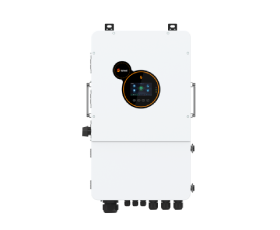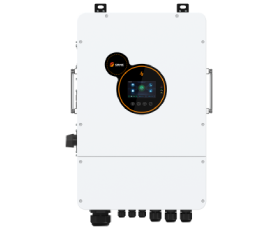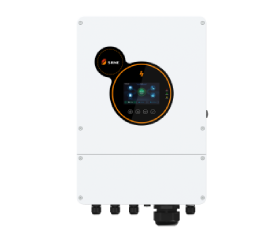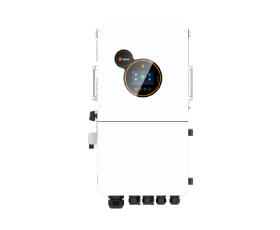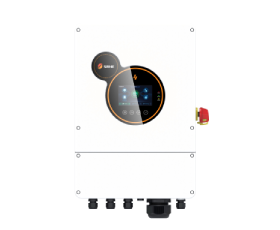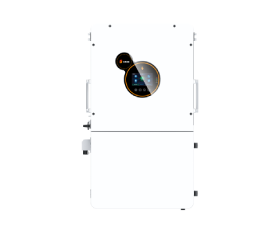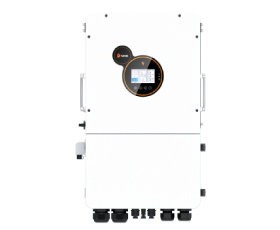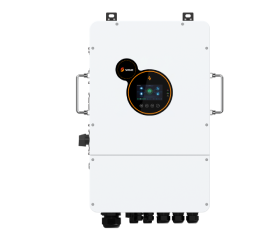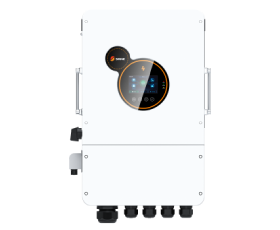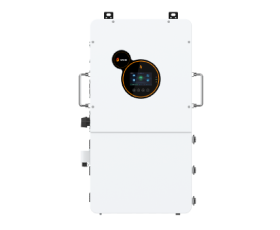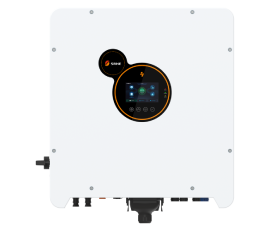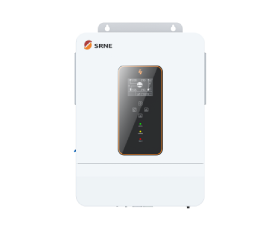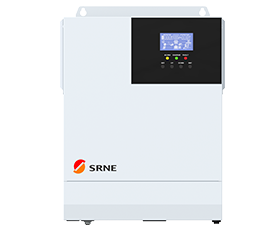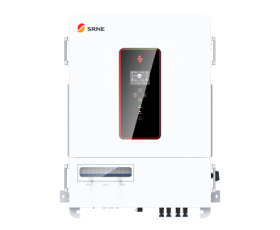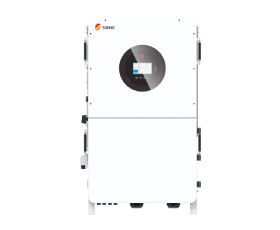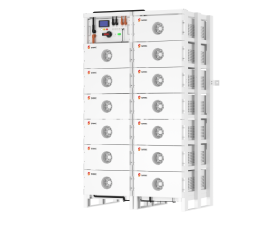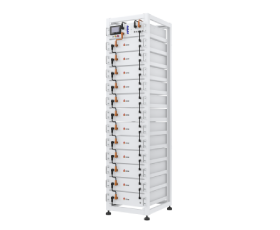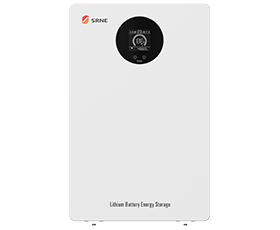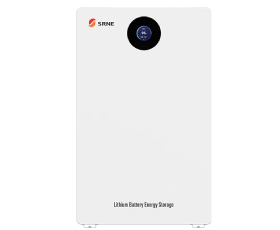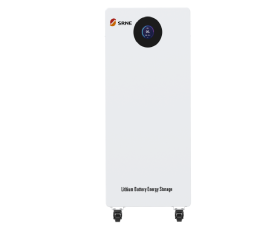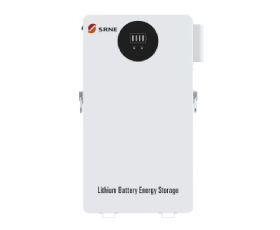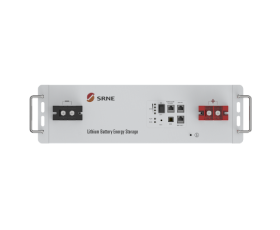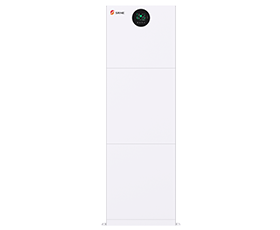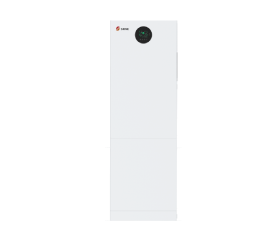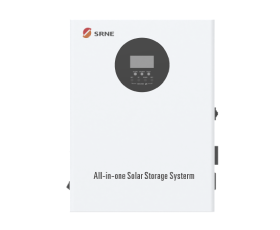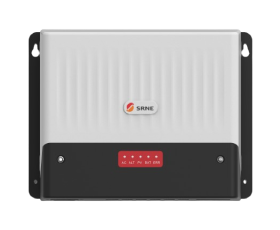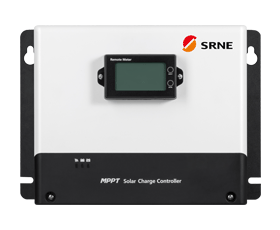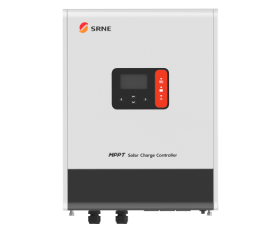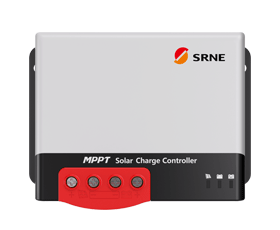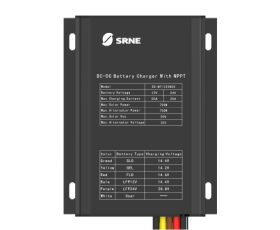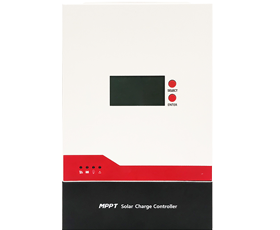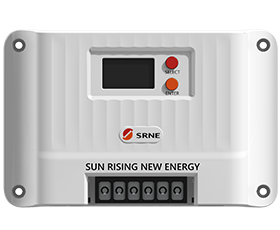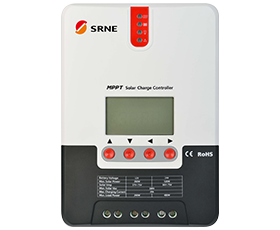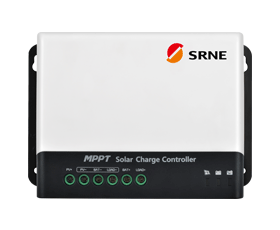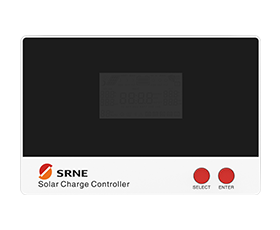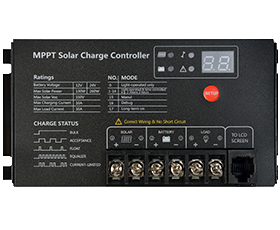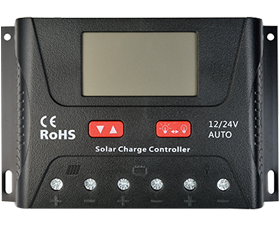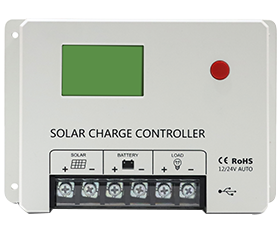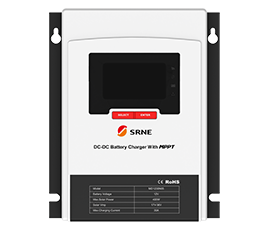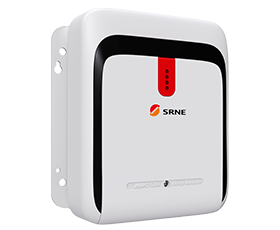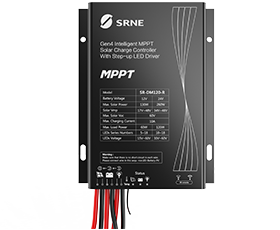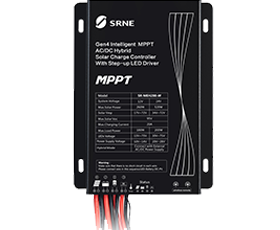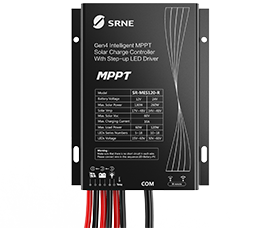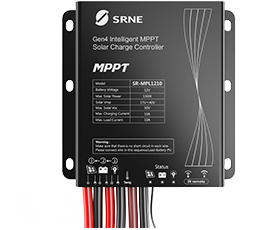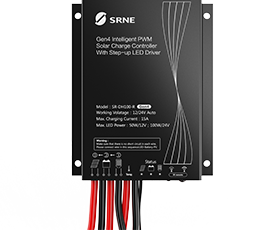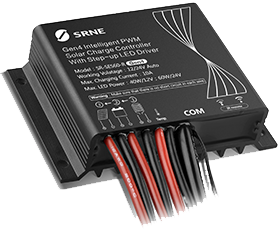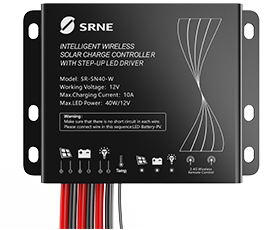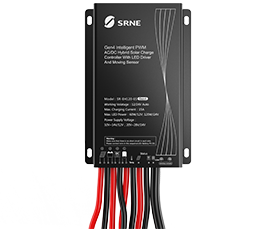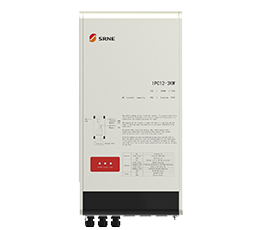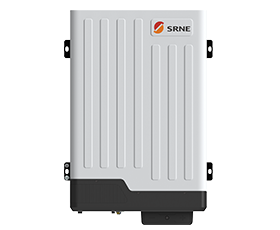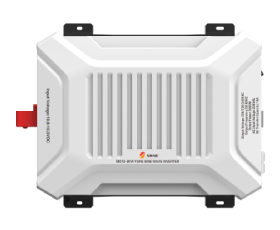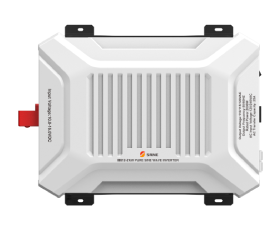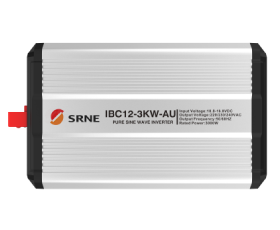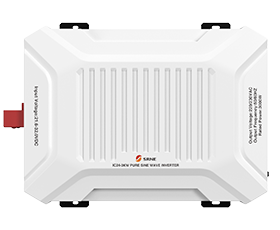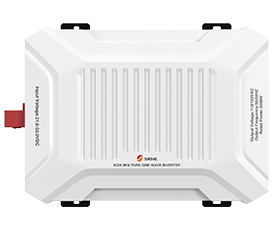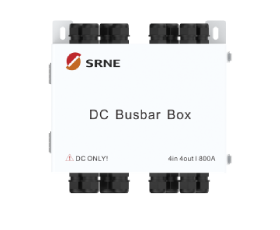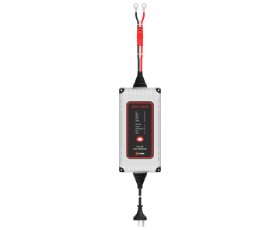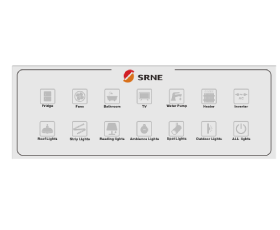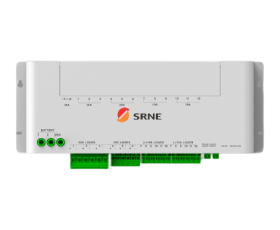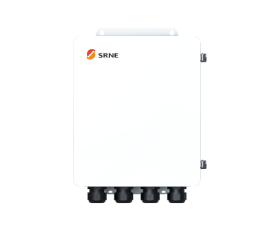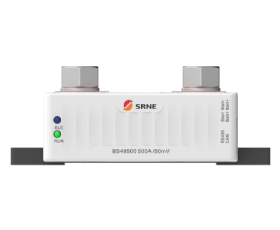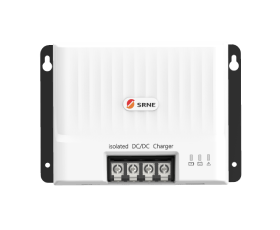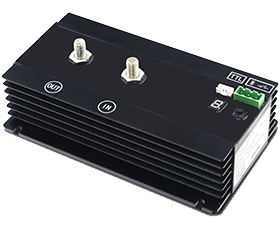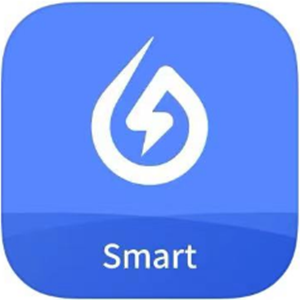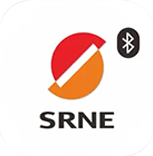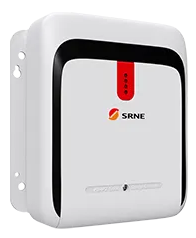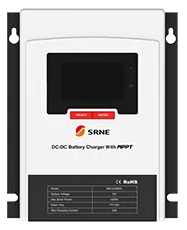DC To DC vs MPPT: What's Right for Dual Battery Systems?
In this article, we break down the differences between MPPT and DC to DC solar charge controllers, explain their best-use scenarios, and show how to protect your lithium battery investment—especially in complex mobile power environments.
For mobile power systems demanding precise lithium battery management, the SRNE MD Series Dual-battery Controller (12V | 55Vdc | 30A/50A) delivers dependable dual-input charging performance—ideal for ensuring safety, efficiency, and long-term battery health on the move.
1. What Is an MPPT Solar Charge Controller?
An MPPT (Maximum Power Point Tracking) solar charge controller is an intelligent device that maximizes the energy drawn from your solar panels by ensuring they operate at their most efficient output level. Instead of simply lowering voltage like a PWM controller, MPPT technology actively tracks the panel's “maximum power point” — the ideal combination of voltage and current for peak performance.
Since solar output constantly changes with sunlight, temperature, and shading, the MPPT controller continuously adjusts to real-time conditions. This dynamic tracking allows the system to convert excess panel voltage into additional charging current, significantly boosting charging efficiency — often by 20–30% — especially in colder or low-light environments. In essence, it ensures more of your solar power goes into the battery rather than being lost, making it ideal for systems where solar is the primary energy source.
And when both solar and alternator charging are used in a 48V setup, the SRNE MD Series Dual-battery Controller (MPPT | 48V | 30A) provides smart, integrated power management—leveraging advanced MPPT technology to optimize energy harvest while safeguarding your lithium battery investment.
2. What Is a DC to DC Solar Charge Controller?
A DC to DC solar charge controller is a specialized device designed to charge a secondary battery—often in vehicles like RVs, boats, or off-grid setups—by intelligently managing power from both the alternator and a solar panel. Unlike standard MPPT controllers, which are optimized solely for solar input, a DC to DC controller offers dual-input capability, allowing it to prioritize and balance charging between the vehicle's engine (alternator) and solar energy, depending on availability.
This type of controller not only ensures reliable battery charging while driving, but also maximizes solar input when the vehicle is parked. Most models come equipped with smart charging profiles that can be tailored to different battery types such as lithium, AGM, or gel, enhancing battery life and safety.
While DC to DC controllers tend to have slightly lower solar conversion efficiency compared to dedicated MPPT units, their hybrid input functionality makes them a top choice for mobile or dual-battery systems where flexibility and reliability matter more than peak solar efficiency.
3. Key Differences Between DC to DC and MPPT Controllers
Feature | MPPT Controller | DC-DC Controller |
Power Source | Solar Only | Alternator + Solar |
Battery Type Support | Limited profiles | Wide compatibility |
Efficiency | Higher solar efficiency | Moderate solar efficiency |
Use Case | Off-grid solar | Mobile/off-grid vehicles |
Price | Moderate | Higher |
If you're new to off-grid systems and want to understand how a charge controller fits into the setup, check out our complete guide
4. Why DC to DC Solar Charge Controllers Are Ideal for Mobile Power Systems
In mobile setups like camper vans, RVs, and boats, the power system relies on two different energy sources: the vehicle’s alternator while driving and solar panels when parked. DC-DC solar charge controllers are specially designed to handle these dual inputs. They can intelligently manage and switch between power from the alternator and the solar panels, or even combine them, ensuring the auxiliary battery stays charged continuously. This battery often powers important onboard devices such as lights, refrigerators, and communication gear, making reliable charging essential.
One of the biggest challenges in these mobile environments is that alternator voltage is unstable and noisy, fluctuating with engine speed and load. Unlike the steady output from solar panels, this can cause electrical spikes or drops. DC-DC controllers solve this by stabilizing and filtering the alternator’s power, delivering a steady and safe charging current that protects the auxiliary battery and improves charging efficiency even under these tough conditions.
Another important feature is ignition sensing, which detects whether the engine is running or off. This prevents the auxiliary system from draining the starter battery when the vehicle is off, ensuring you don’t get stranded with a dead main battery. Also, DC-DC controllers have smart charging profiles designed for the frequent start-stop patterns in vehicles, adjusting voltage and current as needed to maintain battery health.
On the other hand, MPPT controllers are built only for solar input and cannot handle alternator power directly. Without additional components, they won’t charge the battery when driving, which limits their usefulness in mobile dual-battery systems where both solar and alternator charging are important.
In conclusion, DC-DC controllers offer smarter management of unstable alternator power, protect the starter battery with ignition sensing, and provide adaptive charging that fits vehicle usage patterns, making them the best choice for mobile power systems using both alternator and solar charging.
Planning a solar upgrade for your RV? Don’t miss our expert guide on picking the right inverter for mobile life:
5. Why MPPT Charge Controllers Are Best for Fixed Solar-Only Off-Grid Systems
In stationary off-grid setups like remote cabins, sheds, or small homes, solar power is typically the only energy source, without backup from alternators or generators. MPPT charge controllers are ideal for these systems because they use advanced maximum power point tracking technology. This technology constantly monitors and adjusts the voltage and current from solar panels in real time, helping the system adapt to changes in sunlight and temperature. This ensures the solar panels work at their highest efficiency, even in difficult conditions such as cloudy days, low light, or cold weather, which are common in off-grid solar setups.
Fixed solar installations often have large arrays connected to central battery banks through long cables. MPPT controllers can handle higher input voltages, which lets the system increase voltage while lowering current. Lower current means less voltage drop and reduced wiring costs, making the whole system more efficient. Thanks to their ability to manage these higher voltages and optimize power extraction continuously, MPPT controllers enable efficient energy transfer over longer distances—a major benefit for remote or larger installations.
Besides efficiency, MPPT solar charge controllers have a simple and reliable design that requires less maintenance, making them perfect for long-term, unattended off-grid use. On the other hand, DC-DC controllers usually cannot handle high input voltages or perform maximum power point tracking, so they are less suitable for purely solar stationary systems. That’s why MPPT charge controllers are the best choice for fixed off-grid solar setups, providing better energy capture and overall system performance.
6. Lithium Battery Systems (Especially in Mobile Use)
DC-DC Controllers for Optimal Lithium Battery Management
Lithium batteries require more precise charging compared to traditional lead-acid types. Improper charging—whether it’s overcharging, undercharging, or incorrect voltage—can rapidly degrade their capacity or even create safety hazards like thermal runaway. DC-DC controllers use programmable multi-stage charging processes (bulk, absorption, float, and balancing) tailored to various lithium chemistries such as LiFePO4 and lithium polymer. This precise control ensures stable voltage, temperature compensation, and prolongs battery lifespan.
In mobile settings, lithium battery charging faces extra challenges because alternator voltages are often unstable and not designed for lithium batteries. Without a DC-DC converter, lithium batteries may never achieve a full, safe charge, limiting their performance and durability. Although MPPT controllers support lithium batteries on the solar side, they can’t properly regulate alternator charging. Therefore, DC to DC solar charge controllers are essential in dual-input mobile systems to deliver steady, correct charging currents from both power sources.
By managing each charging phase carefully, DC to DC controllers protect lithium batteries from damage and prevent overvoltage risks from the alternator, ensuring safe charging whether the vehicle is running or off. Their adaptability to different lithium chemistries also allows for flexible, customized battery management.
In short, for mobile dual-battery setups using lithium cells, DC-DC controllers offer the safest, most efficient, and reliable charging solution, perfectly addressing the complex needs of lithium battery care in dynamic mobile power environments.
Learn more:
Planning an RV power upgrade? Don’t miss our expert inverter selection guide:
Want to dive deeper into controller applications? Explore more:
https://www.srnesolar.com/articledetail/srne-rv-product-evaluation-collection.html
Conclusion
Whether you're outfitting a solar system for a weekend getaway vehicle or a permanent off-grid home, choosing the right charge controller is crucial for safety, performance, and long-term battery health.



















